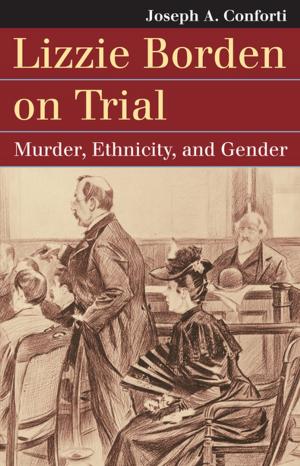Honoring the Civil War Dead
Commemoration and the Problem of Reconciliation
Nonfiction, History, Americas, United States, Civil War Period (1850-1877), Travel| Author: | John R. Neff | ISBN: | 9780700623440 |
| Publisher: | University Press of Kansas | Publication: | April 14, 2005 |
| Imprint: | University Press of Kansas | Language: | English |
| Author: | John R. Neff |
| ISBN: | 9780700623440 |
| Publisher: | University Press of Kansas |
| Publication: | April 14, 2005 |
| Imprint: | University Press of Kansas |
| Language: | English |
By the end of the Civil War, fatalities from that conflict had far exceeded previous American experience, devastating families and communities alike. As John Neff shows, commemorating the 620,000 lives lost proved to be a persistent obstacle to the hard work of reuniting the nation, as every memorial observation compelled painful recollections of the war.
Neff contends that the significance of the Civil War dead has been largely overlooked and that the literature on the war has so far failed to note how commemorations of the dead provide a means for both expressing lingering animosities and discouraging reconciliation. Commemoration—from private mourning to the often extravagant public remembrances exemplified in cemeteries, monuments, and Memorial Day observances—provided Americans the quintessential forum for engaging the war's meaning.
Additionally, Neff suggests a special significance for the ways in which the commemoration of the dead shaped Northern memory. In his estimation, Northerners were just as active in myth-making after the war. Crafting a "Cause Victorious" myth that was every bit as resonant and powerful as the much better-known "Lost Cause" myth cherished by Southerners, the North asserted through commemorations the existence of a loyal and reunified nation long before it was actually a fact. Neff reveals that as Northerners and Southerners honored their separate dead, they did so in ways that underscore the limits of reconciliation between Union and Confederate veterans, whose mutual animosities lingered for many decades after the end of the war.
Ultimately, Neff argues that the process of reunion and reconciliation that has been so much the focus of recent literature either neglects or dismisses the persistent reluctance of both Northerners and Southerners to “forgive and forget,” especially where their war dead were concerned. Despite reunification, the continuing imperative of commemoration reflects a more complex resolution to the war than is even now apparent. His book provides a compelling account of this conflict that marks a major contribution to our understanding of the war and its many meanings.
By the end of the Civil War, fatalities from that conflict had far exceeded previous American experience, devastating families and communities alike. As John Neff shows, commemorating the 620,000 lives lost proved to be a persistent obstacle to the hard work of reuniting the nation, as every memorial observation compelled painful recollections of the war.
Neff contends that the significance of the Civil War dead has been largely overlooked and that the literature on the war has so far failed to note how commemorations of the dead provide a means for both expressing lingering animosities and discouraging reconciliation. Commemoration—from private mourning to the often extravagant public remembrances exemplified in cemeteries, monuments, and Memorial Day observances—provided Americans the quintessential forum for engaging the war's meaning.
Additionally, Neff suggests a special significance for the ways in which the commemoration of the dead shaped Northern memory. In his estimation, Northerners were just as active in myth-making after the war. Crafting a "Cause Victorious" myth that was every bit as resonant and powerful as the much better-known "Lost Cause" myth cherished by Southerners, the North asserted through commemorations the existence of a loyal and reunified nation long before it was actually a fact. Neff reveals that as Northerners and Southerners honored their separate dead, they did so in ways that underscore the limits of reconciliation between Union and Confederate veterans, whose mutual animosities lingered for many decades after the end of the war.
Ultimately, Neff argues that the process of reunion and reconciliation that has been so much the focus of recent literature either neglects or dismisses the persistent reluctance of both Northerners and Southerners to “forgive and forget,” especially where their war dead were concerned. Despite reunification, the continuing imperative of commemoration reflects a more complex resolution to the war than is even now apparent. His book provides a compelling account of this conflict that marks a major contribution to our understanding of the war and its many meanings.















